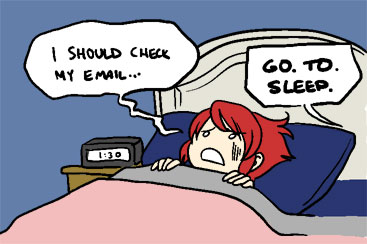Not so many years ago, writers had very little information about how to try to publish a book. You bought a copy of the Writer's and Artist's Yearbook, read it cover to cover, and... that was about it. Then you snail-mailed your manuscript off to agents, selling your children to pay the postage costs, built a bourbon-and-cupcakes shrine to the writing gods, and waited.
These days it couldn't be more different. There's a Scrooge McDuck swimming pool-sized wealth of information online, covering every aspect of writing, querying and publishing. But all the same, I often see new writers on Twitter who are lost and don't know where to start. Or there's just so much info out there, they don't know what to pay attention to. So I hope this post might help out anyone who is new and confused about this crucial step on the publishing journey.
These days it couldn't be more different. There's a Scrooge McDuck swimming pool-sized wealth of information online, covering every aspect of writing, querying and publishing. But all the same, I often see new writers on Twitter who are lost and don't know where to start. Or there's just so much info out there, they don't know what to pay attention to. So I hope this post might help out anyone who is new and confused about this crucial step on the publishing journey.
So you've written a book, and polished it until it shines with the simultaneously kind and ass-kicking help of your critique partners. WOOHOO! Congratulations. That is TOTALLY the hardest part. So what comes next?
THE QUERY. Unless you're going to self-publish, most publishers aren't open to submissions from unagented writers. So you're going to have to get yourself an agenty partner-in-crime. And to get that awesome partner-in-crime, you're going to have to write a kickass query, also known as a pitch or cover letter. This is basically you trying to sell your book - think of it as back-cover copy, something that entices the reader (or agent) to buy the book. And some agents don't even ask for pages with the query, so you really need to get this right. No pressure. Here are a few places where you can go to learn how to write the pesky little things and also to read successful queries to see what works:
Query Shark: Run by awesome agent Janet Reid, this place has been around forever and the archives are a font of useful information. Plus, if you're brave enough, you can even send your own query in to be ripped to shreds.
Nathan Bransford: Search queries on this ex-agent's website and you'll find tons of useful information and tips, my favourite of which is his brilliant query formula.
Kickass Query Series: A blog by writer Gina Ciocca with several successful queries (including yours truly's, ahem).
Querytracker: This place isn't just the best site for finding agents and keeping track of queries, it also has a lot of successful queries from former members.
Agent Query Connect: Site with all kinds of writing and publishing info, and they also have a lot of successful queries to peruse.
Writer's Digest: This veteran magazine has a huge archive of successful queries from all kinds of genres and categories.
The Blueboards: If you've posted enough times (over 50, I think), you can put your query up on this kidlit/YA forum and ask the members for help. And don't sniff at helping other members with their queries too. It'll get your post count up if you need it, and critiquing others' work will also help with your own.
Absolute Write: Same as the Blueboards, but for adult writers too.
And of course, don't forget to run your query past your critique partners too.
THE QUERY. Unless you're going to self-publish, most publishers aren't open to submissions from unagented writers. So you're going to have to get yourself an agenty partner-in-crime. And to get that awesome partner-in-crime, you're going to have to write a kickass query, also known as a pitch or cover letter. This is basically you trying to sell your book - think of it as back-cover copy, something that entices the reader (or agent) to buy the book. And some agents don't even ask for pages with the query, so you really need to get this right. No pressure. Here are a few places where you can go to learn how to write the pesky little things and also to read successful queries to see what works:
Query Shark: Run by awesome agent Janet Reid, this place has been around forever and the archives are a font of useful information. Plus, if you're brave enough, you can even send your own query in to be ripped to shreds.
Nathan Bransford: Search queries on this ex-agent's website and you'll find tons of useful information and tips, my favourite of which is his brilliant query formula.
Kickass Query Series: A blog by writer Gina Ciocca with several successful queries (including yours truly's, ahem).
Querytracker: This place isn't just the best site for finding agents and keeping track of queries, it also has a lot of successful queries from former members.
Agent Query Connect: Site with all kinds of writing and publishing info, and they also have a lot of successful queries to peruse.
Writer's Digest: This veteran magazine has a huge archive of successful queries from all kinds of genres and categories.
The Blueboards: If you've posted enough times (over 50, I think), you can put your query up on this kidlit/YA forum and ask the members for help. And don't sniff at helping other members with their queries too. It'll get your post count up if you need it, and critiquing others' work will also help with your own.
Absolute Write: Same as the Blueboards, but for adult writers too.
And of course, don't forget to run your query past your critique partners too.
So your query's in sparkling shape. What's next? Next you need to research agents. There's no point wasting time querying an agent who doesn't represent your genre, or represents YA but has said that they hate stories about warrior princesses who save the world by turning into a pig when that's what you've written. There are numerous places to find agent information, but my favourites were the agent's own website (yes they might be listed elsewhere but their own site will tell you they've closed to queries for the summer, for example, and most importantly, tell you the correct email address and exactly what their submission guidelines are - ALWAYS FOLLOW THE GUIDELINES, FOLKS) and these two:
Querytracker: Yes, I mentioned it above, but it's so, so helpful, and it makes it so easy to keep track of all your queries. And if you want to REALLY obsess, you can get a paid membership and find out all kinds of extra stats and info. Which I was totally not obsessed enough to do when I was querying. Certainly not.
Literary Rambles: Brilliant site with a big database of links to agent interviews all over the web. Super helpful.
And then it's time to get on with it! It's totally up to you, but I'd suggest sending out 5-10 queries to start with, and seeing what kind of feedback you get. As long as you get a little bit of friendly feedback in return - a partial request here, a 'not this one but send me the next thing you write' encouraging rejection there - then you know your query is okay. In which case keep sending out another 5 or ten every two or three weeks. (Don't wait for replies! Agents are busy and thus often very SLOW.) If you get nothing but form rejections, then revise your query some more, and then get back to it.
And then one fine day an agent will send you a magical email including the words 'I'd like to chat, when are you free?' or 'Can we meet?' and you will do cartwheels and drink margaritas and live in a world of rainbows and bunnies for ever and ever. Or at least until you go on submission, which is a whole fresh level of Hell...
Querytracker: Yes, I mentioned it above, but it's so, so helpful, and it makes it so easy to keep track of all your queries. And if you want to REALLY obsess, you can get a paid membership and find out all kinds of extra stats and info. Which I was totally not obsessed enough to do when I was querying. Certainly not.
Literary Rambles: Brilliant site with a big database of links to agent interviews all over the web. Super helpful.
And then it's time to get on with it! It's totally up to you, but I'd suggest sending out 5-10 queries to start with, and seeing what kind of feedback you get. As long as you get a little bit of friendly feedback in return - a partial request here, a 'not this one but send me the next thing you write' encouraging rejection there - then you know your query is okay. In which case keep sending out another 5 or ten every two or three weeks. (Don't wait for replies! Agents are busy and thus often very SLOW.) If you get nothing but form rejections, then revise your query some more, and then get back to it.
And then one fine day an agent will send you a magical email including the words 'I'd like to chat, when are you free?' or 'Can we meet?' and you will do cartwheels and drink margaritas and live in a world of rainbows and bunnies for ever and ever. Or at least until you go on submission, which is a whole fresh level of Hell...



